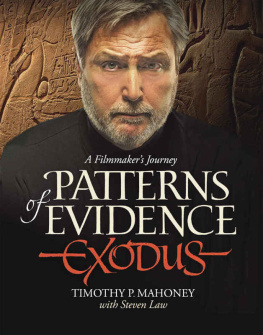Timothy R. O’Donnell - Evidence of Falsehood
Here you can read online Timothy R. O’Donnell - Evidence of Falsehood full text of the book (entire story) in english for free. Download pdf and epub, get meaning, cover and reviews about this ebook. year: 2016, genre: Science. Description of the work, (preface) as well as reviews are available. Best literature library LitArk.com created for fans of good reading and offers a wide selection of genres:
Romance novel
Science fiction
Adventure
Detective
Science
History
Home and family
Prose
Art
Politics
Computer
Non-fiction
Religion
Business
Children
Humor
Choose a favorite category and find really read worthwhile books. Enjoy immersion in the world of imagination, feel the emotions of the characters or learn something new for yourself, make an fascinating discovery.
- Book:Evidence of Falsehood
- Author:
- Genre:
- Year:2016
- Rating:3 / 5
- Favourites:Add to favourites
- Your mark:
- 60
- 1
- 2
- 3
- 4
- 5
Evidence of Falsehood: summary, description and annotation
We offer to read an annotation, description, summary or preface (depends on what the author of the book "Evidence of Falsehood" wrote himself). If you haven't found the necessary information about the book — write in the comments, we will try to find it.
Evidence of Falsehood — read online for free the complete book (whole text) full work
Below is the text of the book, divided by pages. System saving the place of the last page read, allows you to conveniently read the book "Evidence of Falsehood" online for free, without having to search again every time where you left off. Put a bookmark, and you can go to the page where you finished reading at any time.
Font size:
Interval:
Bookmark:
Evidence of Falsehood
By Timothy R. ODonnell
nd Edition.
copyright 2018 by Timothy R. ODonnell
All rights reserved.
No part of this publication may be reproduced in whole or in part, or stored in a retrieval system, or transmitted in any form or by any means, electronic, mechanical, photocopying, recording, or otherwise, without the permission of the author.
Cover art - La_Vrit,_by_Jules_Joseph_Lefebvre, 1870
Preface
Look at you. You are unique. You are a perceptive, knowledgeable, reasonable, thinking, conscious being. No one knows you better than you do. And yet, you live your life as though you were a fish. Youre floundering. Yesterday, you flopped in one direction, today in another, and tomorrow? Who only knows? In the past, you dreamed of a beautiful wonderful life, today that same dream consists of pursuits which are altogether different, and tomorrow? Who only knows?
So, how well do you really know yourself? How do you answer the question: who am I? Look at how you define yourself - by your employment, your relationships, your possessions, your dreams, your actions, by what you do, by what you think, by what you say, and by what you like. And what happens when you no longer do the things you do, own the things you own, dream the things you dream, think the things you think, say the things you say, or like the things you like? Do you cease to exist? Is there no part of you that is constant? If not, then who are you? Worse still, do other people define who you are? Are you simply what others perceive you to be? It cannot be.
And, do you find yourself ever wondering if this is all there is? Does God exist? What is the meaning of life? Do you know your lifes purpose? What about happiness? Whatever happened to happily ever after? Why is joy so fleeting? If life has not met your expectations of beauty, happiness, and wonder, how did it ever come to be so?
This is a book of philosophy and for that, I apologize. Philosophy used to try and explain the world around us and our experiences, to answer the basic questions, like the ones above, and to help us make sense of it all. If it still did that, it would truly be a great thing!
More often of late, to anyone with a shred of common sense, philosophers seem to have lost their marbles. The answers we get to lifes questions are more confusing than ever, and the arguments become inane to the point that a common man would regret asking the big questions.
There are good reasons for the overall failure of modern philosophy to answer lifes big questions. Some of the mistakes were made over 2400 years ago by early western philosophers. When your foundation is built on sand, is there any mystery why the edifice eventually crumbles? Furthermore, modern philosophers have in some cases assumed their own hypothesis from the start, ignoring the evidence of falsehood.
And so, again I apologize, for the topics of philosophical discussion can be difficult to swallow and digest. I empathize with you, and so, I will try to make my evaluation of these questions as palatable as possible.
More importantly, this is a book of answers and that is truly a great thing! Once you have the answers to the big questions, the little ones will all fall into place. Together we are going to examine these age-old questions and come up with some real answers - ones that will help explain the world around us and our experience of it. Some of the answers will undoubtedly astound you, because truth is astounding.
And, of course, there will be those who simply cant handle the truth. In the end, they will be truly ashamed of themselves. They will let this opportunity slip through their fingers and continue to muddle through life without direction. Do you expect the right answers to confirm the floundering life you are leading? Are you willing to change your life for the better? Then you must expect and prepare for hard work ahead of you.
If you are among those few who already know the answers to lifes questions, then you know your lifes purpose, and are not floundering, but driven toward this goal. What is more, you are certain that it is the right goal and you are not headed in the wrong direction. You are indeed wise beyond your years. But, please, read on. You may find confirmation in your understanding, you may come across something unexpected, or you may discover you dont know everything you thought you did.
For the rest of us, still searching for answers, lets get started.
Part 1 Reality
Reality is merely an illusion, albeit a very persistent one.
~ Albert Einstein
The Past
Western Philosophy was born as a Greek tradition. The word philosophy is a Greek word meaning love of wisdom. So what exactly is wisdom?
Wisdom is the ability to recognize what is good and to use that knowledge to make life better for yourself and those around you.
The Greeks are the first western culture to document philosophic schools of thought. Skepticism is one of the schools of thought born out of this Greek tradition.
While some Greek philosophers discussed knowledge and how man can know something, Greek skeptics came to the conclusion that knowledge is not possible. And that is one of the sad and strange things about philosophy. Someone always seems to come up with a brilliant answer of no, none, or nothing, even when it is quite obvious to the rest of us that there clearly is something. We see null answers come up about reality, knowledge, consciousness, God, the meaning of life everything. To some, everything is nothing. Arent they clever?
So let us examine the idea of nothing and see why it seems to appeal to some people.
The Present
Global Skepticism Scenarios
What if reality is all a dream? What if you actually know nothing of yourself fundamentally? What if, whatever forms your essence is in a constant state of sleep? Your reality would be unknown to you. Maybe you are a butterfly in a cocoon, a dragon in a cave, a baby in a womb, a human being lying in a bed, or sleeping under a tree like Rip Van Winkle. Whatever you actually are, you are dreaming that you are a human being having life experiences. The life experiences you are having are all just dreams. You can pinch yourself, but your essence never wakes up from its slumber.
What if it is all just an elaborate illusion? What if your essence is under the control of an evil demon? This demon supplies the illusion of perception. You feel, hear, see, taste, and smell whatever the evil demon wants you to perceive. Everything, even ideas, like 2+2=4, all come from the deceit of an evil demon.
What if you are a brain in a vat floating in a liquid suspension? The nutrients in the liquid provide the sustenance, chemicals, and oxygen - everything your brain needs. Meanwhile, a super-computer connected to your brain provides a simulation that you are a human being with a body and all its senses. All your experiences could be just an elaborate virtual world.
Any of these scenarios could be true. And we have no way to prove that they arent true. Gasp!
However, isnt each of these scenarios more complicated than a simple purely-physical reality? Cant we just apply Occams Razor and cut out an unnecessary layer of complexity? After all, we dont perceive this sleeping entity, this evil demon, or this super computer.
Occams Razor is a principle to guide scientists in the development of theoretical models. Whereby, among competing hypotheses, the one with the fewest assumptions should be selected for testing.
A Seemingly Physical Reality Dreaming Entity |
A Seemingly Physical Reality Evil Demon |
A Seemingly Physical Reality Computer Simulation |
A Purely Physical Reality |
A purely physical reality appears to be the simpler hypothesis, thus the most worthy of testing. However, we arent actually testing any hypotheses. Furthermore, Occams razor, doesnt allow us to summarily dismiss other hypotheses. It doesnt prove them wrong; nor does it make them less likely. (We cannot factor the likelihood of what exists outside of our frame of reference based on what is within our frame of reference.)
Next pageFont size:
Interval:
Bookmark:
Similar books «Evidence of Falsehood»
Look at similar books to Evidence of Falsehood. We have selected literature similar in name and meaning in the hope of providing readers with more options to find new, interesting, not yet read works.
Discussion, reviews of the book Evidence of Falsehood and just readers' own opinions. Leave your comments, write what you think about the work, its meaning or the main characters. Specify what exactly you liked and what you didn't like, and why you think so.

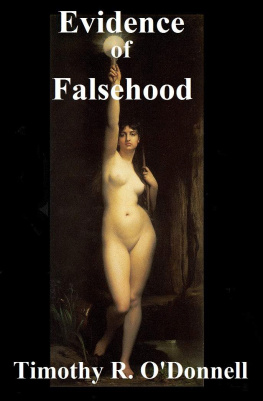
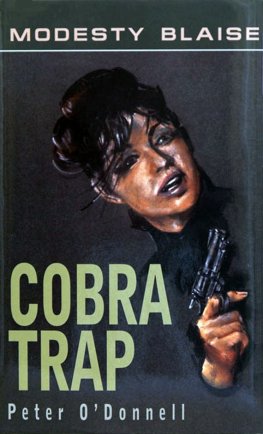
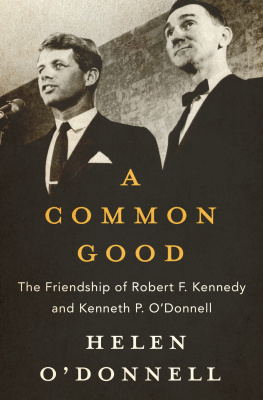

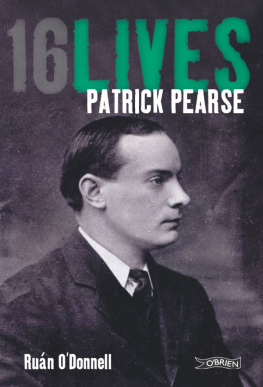
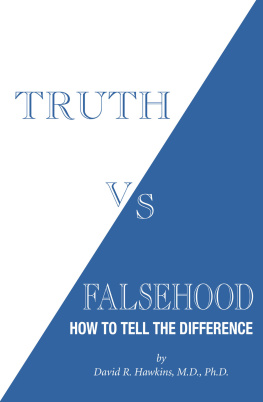
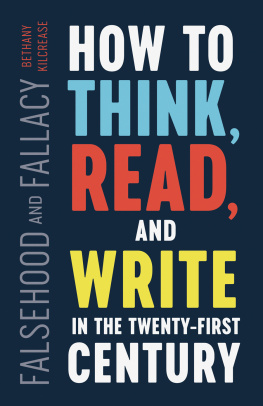
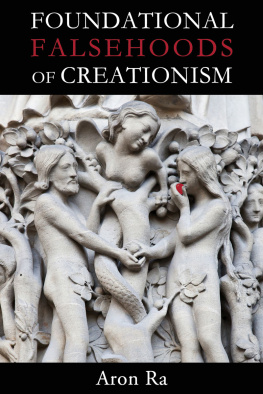

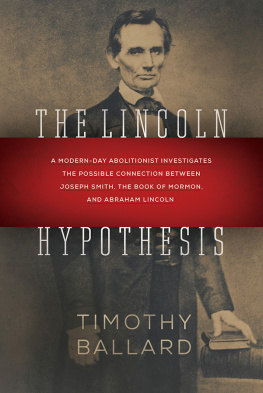
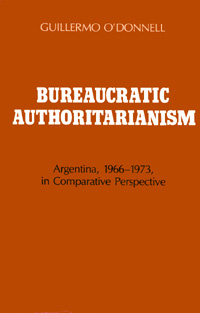
![O’Donnell Wicklund Pigozzi and Peterson - The third teacher 79 ways you can use design to transform teaching & learning ; [a collaborative project]](/uploads/posts/book/113910/thumbs/o-donnell-wicklund-pigozzi-and-peterson-the.jpg)
